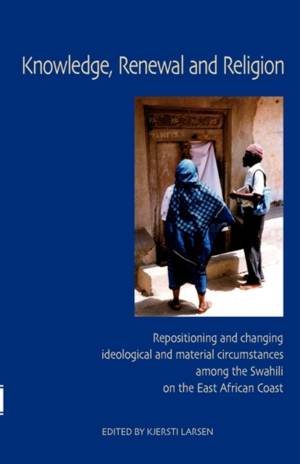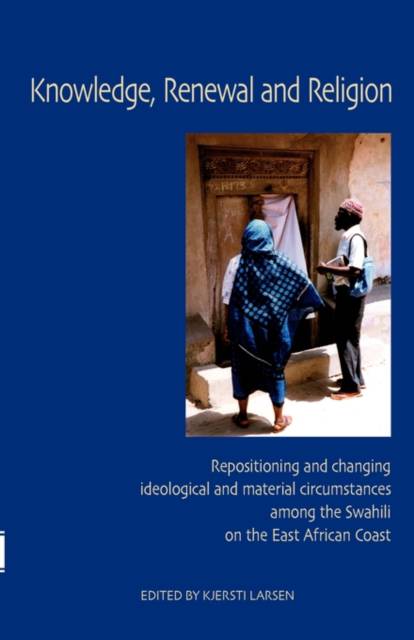
- Afhalen na 1 uur in een winkel met voorraad
- Gratis thuislevering in België vanaf € 30
- Ruim aanbod met 7 miljoen producten
- Afhalen na 1 uur in een winkel met voorraad
- Gratis thuislevering in België vanaf € 30
- Ruim aanbod met 7 miljoen producten
Zoeken
Knowledge, Renewal and Religion
Repositioning and Changing Ideological and Material Circumstances Among the Swahili on the East African Coast
Kjersti Larsen
Paperback | Engels
€ 36,95
+ 73 punten
Omschrijving
In the past decades religion has entered the political debate and is evoked in relation to a variety of events taking place around the world. Religion and religious differences, not political, economic or social, are claimed to be the cause rather than an expression of - or even a reaction to - ongoing problems. Islam and Christianity (or also Islam and Hinduism) are, in most cases, represented not only as opposed, but also as incommensurable worldviews, value systems and identities, where the one is threatening the existence of the other. Among the Swahili on the East-African Coast, this trend provokes questions related to whether we should approach what appear to be expressions of religious positioning in terms of renewal of previous understandings and relationships, or as a rephrasing of complex and conflictual matters that were always part of Swahili society. The papers in this book reveal that the Swahili are experiencing worsening economic, political and social conditions. Within these circumstances, Islam is invoked as a source of knowledge that not only explains the current state of life and living, but also gives directions on how to cope with and to change the situation for the better. Islam is both what reinforces Swahili identity and a particular way of life, and at the same time, given the current international climate, further marginalizes Swahili society and culture. KJERSTI LARSEN is Associate Professor at the Department of Ethnography at the Museum of Cultural History, University of Oslo. She has conducted research in Muslim sociteties in East Africa.
Specificaties
Betrokkenen
- Auteur(s):
- Uitgeverij:
Inhoud
- Aantal bladzijden:
- 312
- Taal:
- Engels
Eigenschappen
- Productcode (EAN):
- 9789171066350
- Verschijningsdatum:
- 1/01/2010
- Uitvoering:
- Paperback
- Formaat:
- Trade paperback (VS)
- Afmetingen:
- 140 mm x 216 mm
- Gewicht:
- 362 g

Alleen bij Standaard Boekhandel
+ 73 punten op je klantenkaart van Standaard Boekhandel
Beoordelingen
We publiceren alleen reviews die voldoen aan de voorwaarden voor reviews. Bekijk onze voorwaarden voor reviews.











